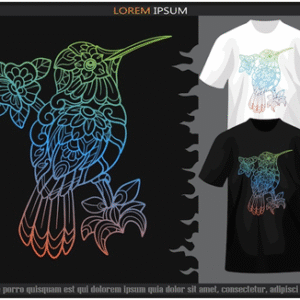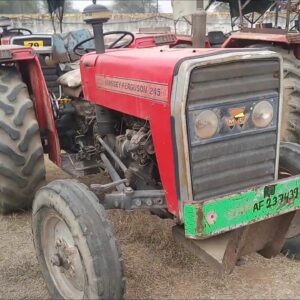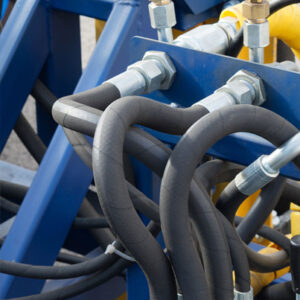Industrial operations today demand stable electrical systems that support automation, continuous loads, and high production output. As factories, infrastructure sites, and utilities upgrade their electrical networks, they require control panels that deliver safe and reliable performance every day. Because of these needs, many companies now choose IEC 61439 electrical control panels for their sites. These assemblies follow strict global rules that define how low-voltage panels should be built, tested, and verified.
The standard ensures safer electrical distribution, predictable performance, and stronger protection for equipment and personnel. Through trusted partners such as PIMA Industrial, industries adopt IEC 61439 panels to support modern power systems, automation equipment, and digital monitoring tools. These panels help facilities control power safely while meeting the growing demands of modern industrial processes.
What Is IEC 61439 and Why Industries Depend on It
IEC 61439 is the international standard governing low-voltage switchgear and controlgear assemblies. It replaced the older IEC 60439 and introduced clearer requirements for construction, component coordination, and testing.
Core Requirements of IEC 61439
-
Verified temperature rise performance
-
Confirmed short-circuit strength
-
Controlled insulation and dielectric behavior
-
Mechanical strength checks
-
Busbar stability and fault endurance
-
IP protection against dust and moisture
These requirements ensure that control panels maintain safe operation in real industrial conditions, where high loads, continuous cycles, and environmental stress are common.
Why Modern Industries Need IEC 61439 Electrical Control Panels
Industries now integrate automation, digital systems, and energy-efficient equipment across their facilities. Because these systems depend on safe electrical distribution, IEC 61439 panels have become a preferred choice.
1. Improved Safety
The standard focuses on protecting both equipment and personnel. Verified short-circuit strength, clear internal separation, and strong insulation reduce risk during operation and maintenance.
2. Reliable Operation in Harsh Conditions
Panels built under IEC 61439 maintain stable performance even under high temperatures, heavy loads, or dusty environments.
3. Predictable Quality
Standardized layouts and testing procedures ensure that every panel behaves consistently, regardless of where it is used.
4. Better Support for Automation
Modern panels integrate with PLCs, drives, sensors, and monitoring devices used in automated production lines.
5. Long-Term Durability
Controlled thermal behavior helps extend the lifespan of breakers, relays, meters, and wiring.
Across major industrial zones, these advantages make IEC 61439 assemblies a dependable option for new projects and upgrades.
Types of IEC 61439 Electrical Control Panels Used Today
Industrial sites use several control panel types based on their load and distribution needs. Each category follows clear design rules, ensuring safe performance through all operating cycles.
Power Control Centers (PCC Panels)
Used to distribute high-capacity power to major loads. PCC panels include main breakers, metering units, and feeders for critical equipment.
Motor Control Centers (MCC Panels)
Used for pumps, conveyors, mixers, blowers, and other motor-driven machinery. MCCs include VFDs, starters, control relays, and protective devices.
Automation Control Panels
These panels house PLCs, HMIs, communication modules, relays, and control wiring. They support automation networks while maintaining safe power handling.
Distribution Boards
Used for organized power distribution across departments, machines, and building zones.
Feeder Pillars
Installed outdoors or in open industrial yards to manage local distribution.
Each panel type follows IEC 61439 rules for busbars, thermal zones, mechanical structure, and protection.
Key Design Features in IEC 61439 Electrical Control Panels
Modern industries require control panels that remain stable under continuous loads while supporting digital systems. Therefore, manufacturers integrate specific design features that meet both safety and performance goals.
1. Segregated Compartments
Segregation reduces the spread of electrical faults and improves worker safety.
2. Modular Construction
Modular sections allow quick maintenance and equipment replacement without stopping the entire panel.
3. Certified Busbar Systems
Busbars must handle rated currents and fault levels without excessive heating.
4. IP-Rated Enclosures
Panels receive IP ratings that ensure protection against dust, water, and environmental exposure.
5. Thermal Management Design
Ventilation paths and heat-resistant materials help maintain safe temperature levels.
6. Space for Expansion
Panels include additional room for future devices, allowing easy upgrades.
7. Compatibility with Digital Tools
Support for metering, sensors, and remote monitoring enables smarter power management.
These features make the panels suitable for a wide range of industrial and commercial applications.
Testing Requirements for IEC 61439 Panels
The standard requires extensive verification before panels reach industrial sites. These tests confirm safe operation during normal and fault conditions.
Main Tests Include:
-
Temperature rise checks
-
Dielectric tests for insulation strength
-
Short-circuit withstand tests
-
Mechanical operation tests
-
IP protection classification checks
-
Busbar performance tests
-
Earthing and continuity checks
By completing these tests, manufacturers ensure that panels behave predictably across all load conditions.
Industries Using IEC 61439 Electrical Control Panels
Gujarat and other industrial regions rely on IEC 61439 panels across multiple sectors:
1. Chemical and Petrochemical Units
Continuous processes depend on safe electrical distribution for pumps, compressors, and reactors.
2. Pharmaceuticals
Electrical stability supports controlled environments, manufacturing equipment, and quality systems.
3. Food Processing
Panels help maintain stable power for packaging lines, temperature-controlled machines, and automation units.
4. Textiles
High-speed machinery requires stable electrical supply to maintain production quality.
5. Engineering and Fabrication
Control systems must support welding machines, robotics, and automated machinery.
6. Utilities and Infrastructure
Water networks, power stations, and commercial buildings depend on safe, organized distribution systems.
Because these sectors require dependable operation, IEC 61439 panels offer a reliable solution.
How These Panels Support Smart Industrial Power Systems
Industrial facilities are shifting toward connected and data-driven operations. IEC 61439 panels support this shift through clear construction rules and modern features.
1. Support for Smart Metering
Energy use can be measured in real time using digital meters and sensors.
2. Integration with Automation Systems
Panels can connect with PLCs, drives, and SCADA networks.
3. Predictive Maintenance
Digital devices help identify abnormalities early, reducing downtime.
4. Better Load Distribution
Clear internal layouts help manage load balancing more effectively.
5. Energy Efficiency Improvements
Stable electrical supply reduces losses and equipment wear.
These capabilities help plants operate with improved performance and lower operational risk.
Qualities That Define a Leading IEC 61439 Panel Manufacturer
Industries depend on manufacturers that follow strict engineering processes and maintain consistent quality.
Key qualities include:
1. Strong Engineering Team
Designers understand load behavior, thermal limits, and protection settings.
2. Testing Capability
Manufacturers must verify every assembly with routine tests and provide detailed reports.
3. High-Quality Components
Breakers, relays, meters, and busbars must meet global performance standards.
4. Accurate Documentation
Clear drawings, wiring diagrams, and reports support safe installation and long-term maintenance.
5. Industrial Experience
Manufacturers should understand site conditions across chemical, utility, engineering, and commercial sectors.
These qualities ensure safe and reliable panels for industrial users.
PIMA Industrial’s Role in Supplying IEC 61439 Panels
With decades of experience, PIMA Industrial supports industrial projects with tested and certified power and control panels. The team works closely with engineering teams, EPC contractors, and project consultants to design assemblies that follow the requirements of IEC 61439.
The company ensures proper component selection, panel layout, thermal design, and clear documentation. Industries use these panels to maintain safe operations, stable voltage conditions, and efficient load distribution across multiple applications.
For support or technical inquiries, facilities can reach out through Contact PIMA Industrial.
FAQs
1. What is an IEC 61439 electrical control panel?
It is a low-voltage control assembly built and tested according to the IEC 61439 standard.
2. Why do industries prefer IEC 61439 panels?
They offer safer operation, predictable performance, and long service life.
3. Do these panels support automation systems?
Yes, they integrate well with PLCs, drives, sensors, and digital monitoring tools.
4. Are IEC 61439 panels required for new projects?
Most new industrial and commercial projects specify them because of their testing requirements.
5. What tests are used to verify compliance?
Short-circuit, temperature rise, dielectric, IP rating, and mechanical endurance tests.
6. Can panels be customized?
Yes, manufacturers can configure the layout based on load, space, and project needs.
7. Which industries use these panels?
Chemical, pharma, textiles, engineering, utilities, food processing, and infrastructure.
8. How long do IEC 61439 panels last?
With proper maintenance, they perform reliably for many years.
9. Are these panels suitable for smart factories?
Yes, they support digital meters, sensors, and connected automation systems.
10. What makes a manufacturer reliable?
Strong testing processes, engineering expertise, and detailed documentation.
Conclusion
IEC 61439 electrical control panels play an essential role in modern industrial power systems. Their tested construction, stable performance, and strong safety features make them suitable for manufacturing plants, utilities, and commercial buildings. As industries adopt more automation and digital tools, these panels provide a dependable foundation for safe and efficient electrical distribution.


